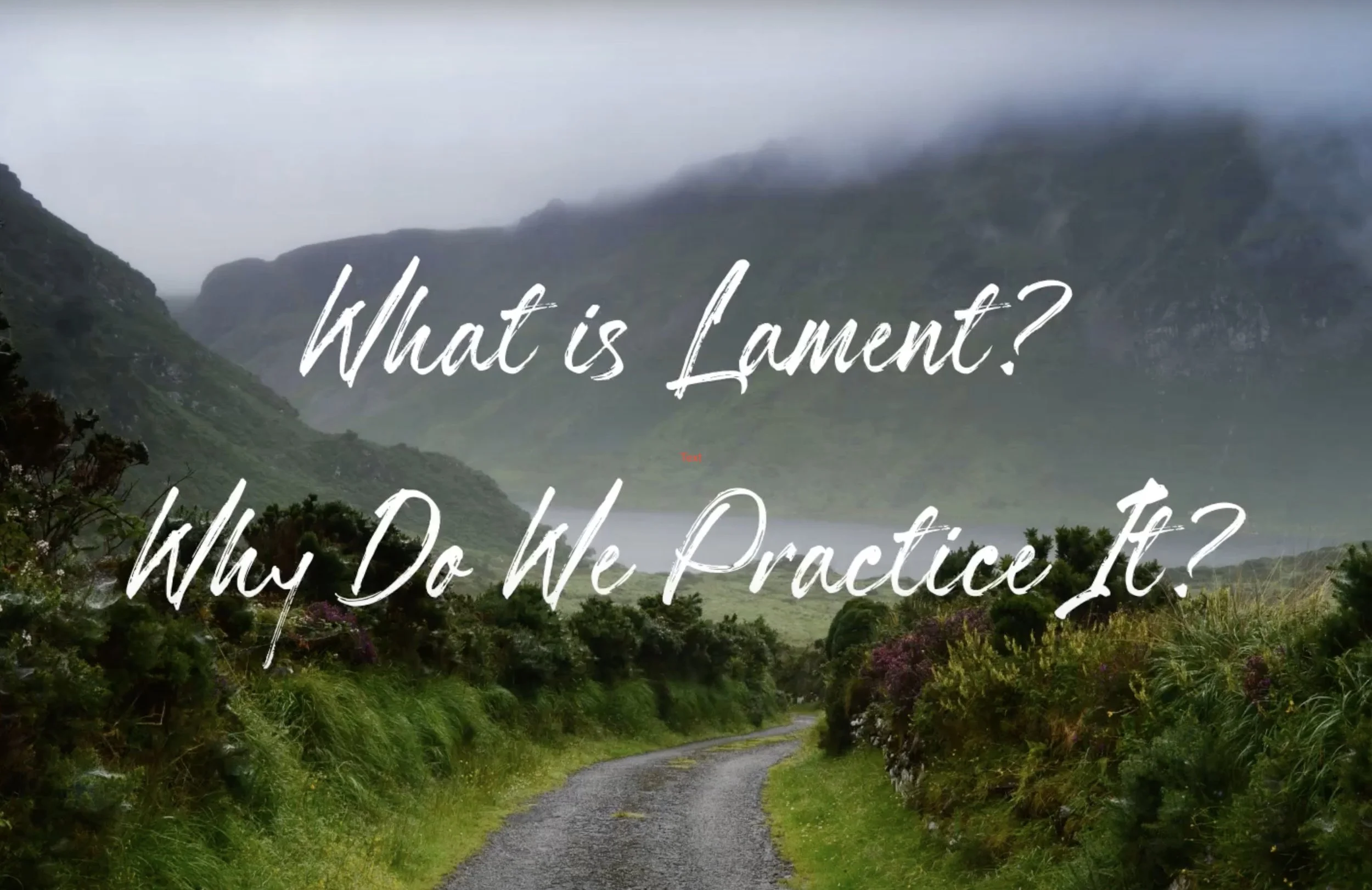Embracing Lament: Awake Prayer Service Brings Our Suffering to God
Last week Awake hosted a special prayer event exploring the spiritual practice of lament, an ideal form of prayer for people suffering in any way. A 15-minute version of the service, ideal for personal prayer, is available below. It features psalms, hymns, and time for personal reflection.
The service begins by explaining lament.
The service begins with several definitions of lament, including these words from Rob Brockman of The Gospel Coalition podcast: “Lament is a form of praise and prayer intended to draw us closer to God in times of great suffering and pain,” he says. “Lament is pleading with God to act in accordance with his character and promises to us. The very act of approaching God in lament is a sign of intimacy and hope."
Fran Tilton Shelton, a spiritual director, notes that of the 150 psalms in the Bible, 58 are laments. Biblical laments, including those in the psalms, usually feature four elements, Brockman explains:
One, we direct our complaint to God.
Two, we describe our suffering.
Three, we acknowledge our dependence on God for help.
Four, we dwell on God's goodness and faithfulness.
During the Awake service, the reader explains that “the goal of lament is to bring our pain before God, not in despair, but in trust, knowing he hears and responds.”
“I Cry Aloud to God”
The service includes Psalm 77, “I Cry Aloud to God,” a lament that expresses doubt that God is near:
At night I ponder in my heart;
and as I meditate, my spirit probes:
“Will the Lord reject us forever,
never again show favor?
Has God’s mercy ceased forever?
The promise to go unfulfilled for future ages?
But then the verses shift to focus on God’s goodness and the protection he extends to his children:
What god is as great as our God?
You are the God who does wonders;
among the peoples you have revealed your might.
With your mighty arm you redeemed your people,
the children of Jacob and Joseph.
The service includes the African American spiritual, “Sometimes I Feel Like a Motherless Child,” a musical lament that includes the line, “Sometimes I feel like I haven’t got a prayer, Lord. I know my time ain’t long.”
Near the end of the recording, participants get the opportunity to pause the video for several minutes in silence to write their own lament for personal use, using the elements that Brockman describes. The service concludes with the thought that trust and hope can exist next to pain, with the 19th century American hymn, “How Can I Keep From Singing.” This song includes the lines:
Thro' all the tumult and the strife
I hear the music ringing;
It finds an echo in my soul—
How can I keep from singing?
Awake is a community that strives to be compassionate, survivor-centered, faithful, welcoming, humble, courageous, and hopeful. We thank you for choosing your words with care when commenting, and we reserve the right to remove comments that are inappropriate or hurtful.

